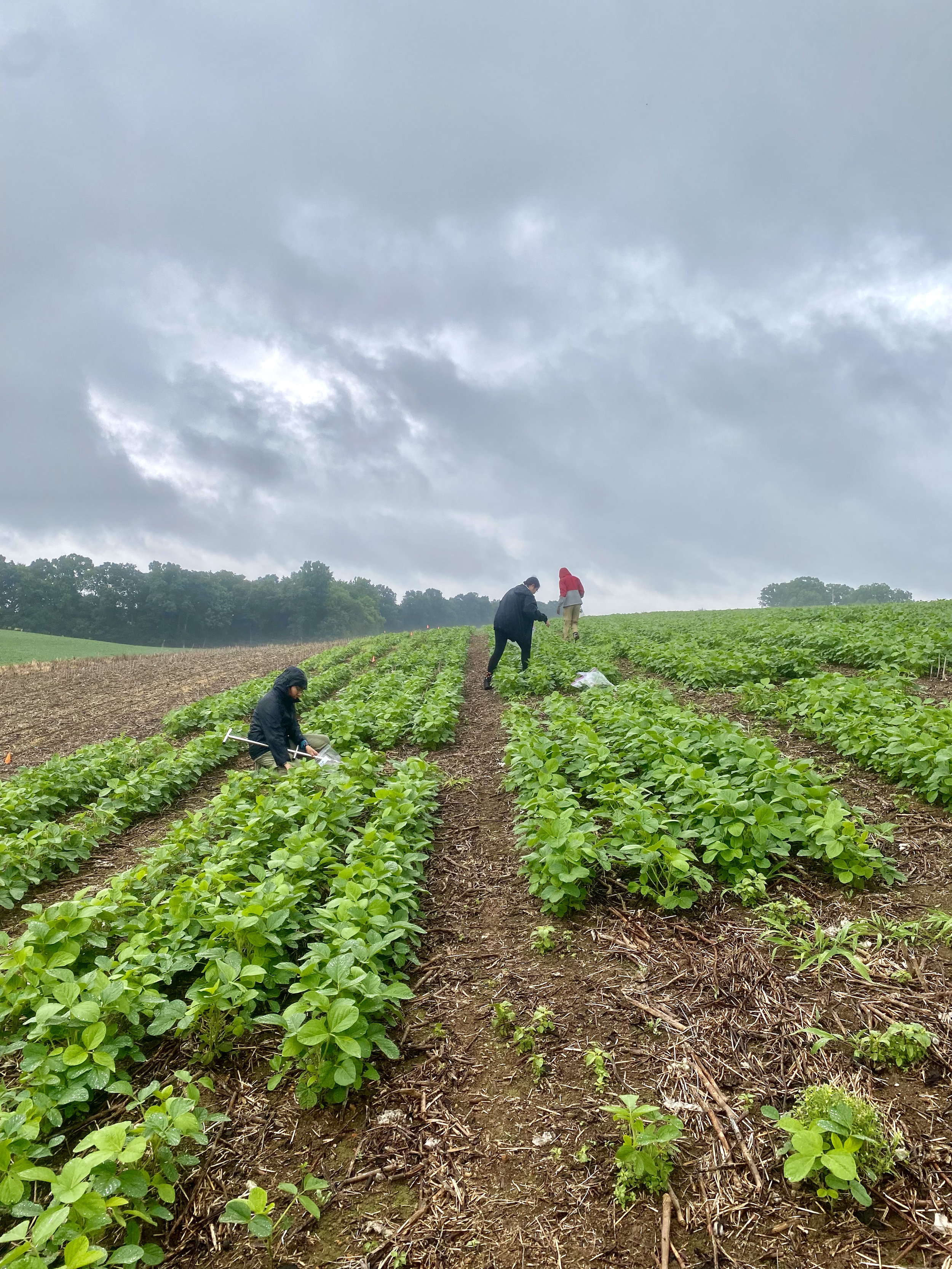Research Projects
North Carolina is home to diverse production systems including traditional row crops, vegetables, and newly merging and speciality crops. Statewide research sites span diverse ecological regions, including 18 agricultural research stations managed by NC State. Our group uses molecular sequencing approaches to quantify microbial traits, explore microbial biogeography, and investigate plant-soil-microbe-soil interactions.
Efficacy & Ecological impact of Microbial products
Microbes are promising solutions for sustainable agriculture, but scaling challenges leads to high field performance variability. We conduct field trials evaluating the efficacy of commercial biologicals (currently in soybean and cotton). We also investigate the ecological impact of microbial inputs on native soil microbiomes using community sequencing approaches.
microbiome responses to land use & management systems
Projects include investigating short-term soil microbiome responses to rapid organic transition and quantifying functions related to carbon dynamics and community resilience (USDA NIFA). And investigating longer-term soil microbiome responses to land management regimes at the Farming Systems Research Unit at CEFS Field Research, Education, and Outreach Facility at Cherry Research Farm. This includes linking function gene potential to GHS emissions.
microbial culture collections
We are building a microbial culture collection isolated from diverse soil habitats across North Carolina to explore microbial (genomic and physiological) traits.
Microbiome Stewardship
Microbiome stewardship is a concept that recognizes the necessity of microbes in sustaining human and environmental health, and emphasizes the imperative to protect them through policy and collective action. The purpose of this interdisciplinary project is to develop an authoritative definition of microbiome stewardship, to develop guiding principles for its implementation, and to develop a framework for its assessment.



